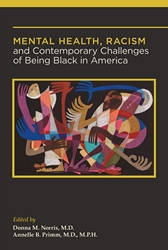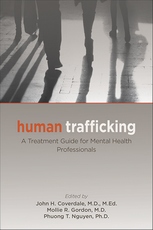The Psychiatric Evaluation and Treatment of Refugees
View Pricing
Description
The Psychiatric Evaluation and Treatment of Refugees is designed to provide mental health clinicians with the foundational knowledge and skills they need to diagnose and treat refugees, who are disproportionately likely to suffer from posttraumatic stress disorder and psychosis in the short term and depression and anxiety in the long term. According to a report by the United Nations, as of 2018, there were 22 million refugees, forcibly displaced and unable to return to their country of origin based on their well-founded fear of persecution due to race, religion, nationality, political opinions, or membership in a specific social group. Refugees in the United States tend to share common characteristics, including the experience of forced migration from their homeland; multiple episodes of abusive and traumatic treatment prior to, during, and postmigration (including death of family members, torture, starvation, and prolonged periods living in unsafe refugee camps); and the bureaucratic nightmare of obtaining housing, medical care, and so forth. Providing these patients with mental healthcare can be both grueling and challenging, and this guide—written by experts in intercultural psychiatry—offers support and counsel to help clinicians understand and provide care to their patients, while caring for themselves and avoiding burnout.
The book's content is compelling and timely:
- Absolutely indispensable is the chapter on children and adolescents, who have borne the brunt of recent policy changes mandating family separation. The complex issue of acculturative stress for immigrant, refugee, and asylum-seeking children, youth, and families in the face of negative stereotyping and economic and educational disadvantage is addressed, as is mitigating the risk of long-term developmental trauma.
- The Oregon Model, developed and launched by the editors and explained in depth in the book, is a research-grounded, team-based treatment model that accommodates the language of refugees, shows respect for their cultural traditions and behaviors, understands the traumas and tragedies of their life experience, and above all demonstrates empathy.
- Psychiatric assessment and both biological and psychological treatment of individuals and families are covered in several chapters, which include techniques involved in adapting individual, group, and family psychotherapy. Each chapter includes clinical case examples to effectively illustrate diverse issues in assessment and treatment.
- The psychiatric assessment and treatment of traumatized refugees raises a wide range of ethical issues, which are examined in a thoughtful and nuanced chapter, in which the author points out that the nature of the refugee experience invariably results in a blurring between the considerations of clinical ethics, which focuses primarily on the doctor-patient relationship, and the broader human rights domain which extends to the relationship of the individual and group to the state.
The Psychiatric Evaluation and Treatment of Refugees will help mental healthcare providers deliver culturally and psychologically sensitive care to patients and clients grappling with past and present trauma and the trials of adjustment in a landscape that can be ethically challenging and emotionally overwhelming.
Contents
- Foreword
- Preface
- Chapter 1. Overview of Cultural and Diagnostic Issues in Refugees
- Chapter 2. Diagnosis and Treatment
- Chapter 3. Psychological Treatment: Narrative Exposure Therapy
- Chapter 4. Post Migration Stress
- Chapter 5. Psychobiology and Psychopharmacology
- Chapter 6. The Oregon Model
- Chapter 7. Children and Adolescents
- Chapter 8. Asylum Seekers
- Chapter 9. Geriatric Patients
- Chapter 10. Contemporary Refugee Crisis at Mexican-United States Border: Case Studies
- Chapter 11. Training Residents
- Chapter 12. Ethical Issues
- Chapter 13. Overview and Future Needs
Contributors
- Erike Apolinar, LMFT
James Boehnlein, M.D.
Keith Cheng, M.D.
James Griffith, M.D.
George A. Keepers, M.D., FACPsych, DLFAPA
J. David Kinzie, M.D., FACPsych, DLFAPA
Mark Kinzie, M.D., Ph.D.
Paul Leung, M.D.
Mario A. Martinez, M.D.
Bernardo Ng, M.D., FAPA
Linda Piwowarczyk, M.D., M.P.H.
Daryn Reicherter, M.D.
Derrick Silove, A.M., M.B. Ch.B. (Hons I), M.D., FRANZCP, FASSA
Sara Teichholtz, M.D.
Dhanviney Verma, M.D.
Ronald Wintrob, M.D.
Paria Zarrinnegar, M.D.
About the Authors
J. David Kinzie, M.D., is Professor in the Department of Psychiatry at Oregon Health & Science University in Portland, Oregon.
George A. Keepers, M.D., is Carruthers Professor and Chair of the Department of Psychiatry at Oregon Health & Science University in Portland, Oregon.
Related Products
Carousel Control - items will scroll by tabbing through them, otherwise arrows can be used to scroll one item at a time








